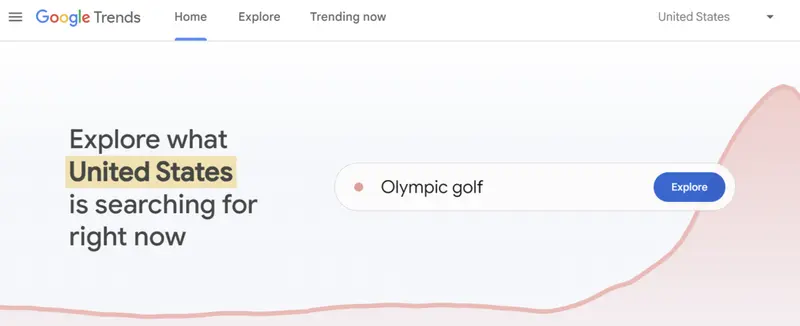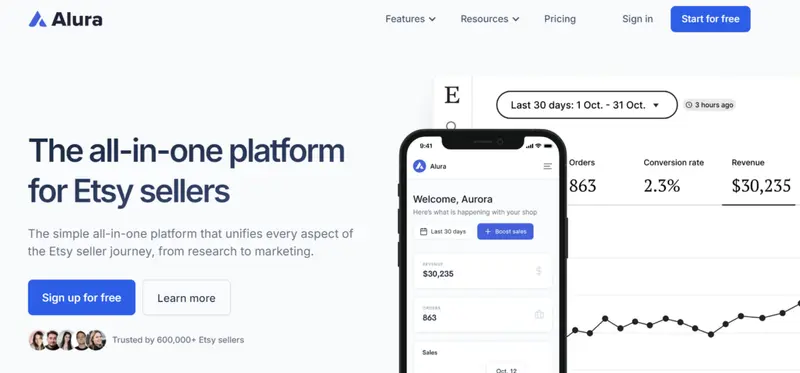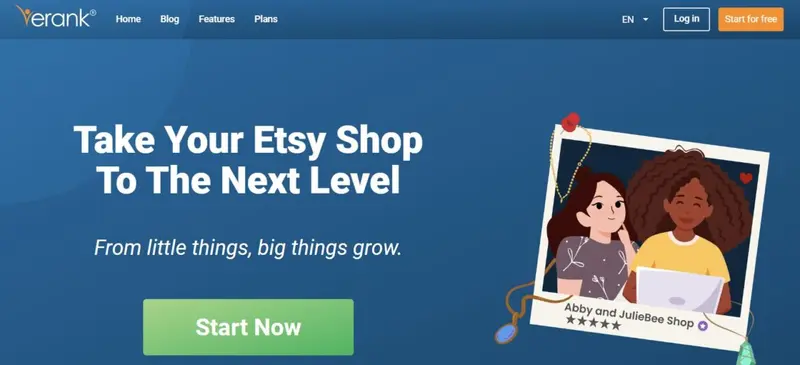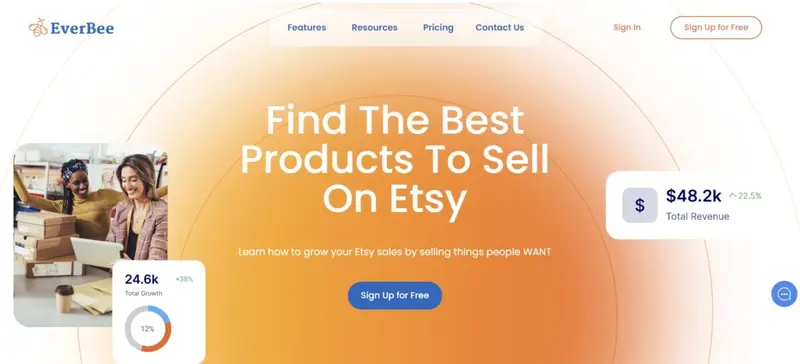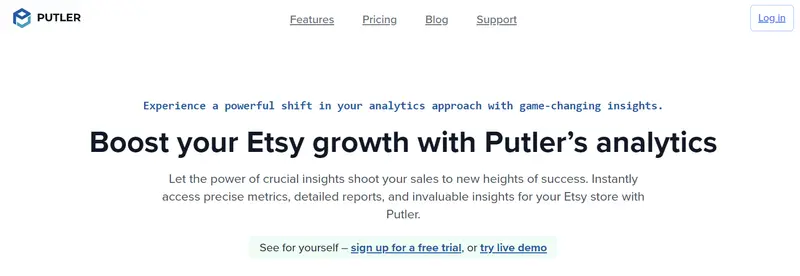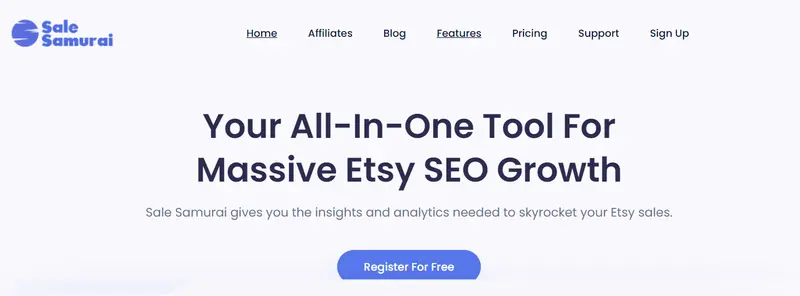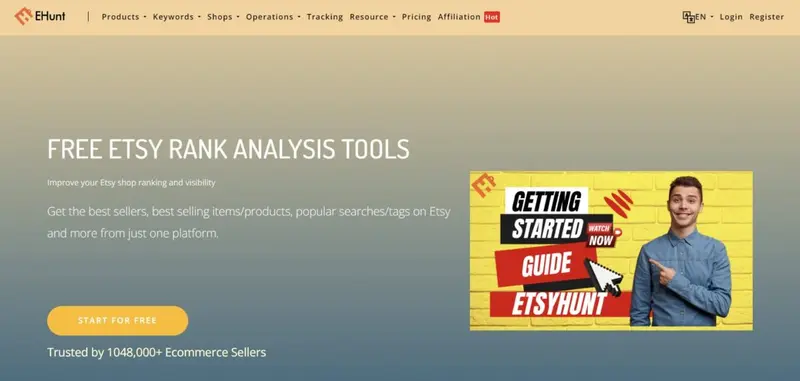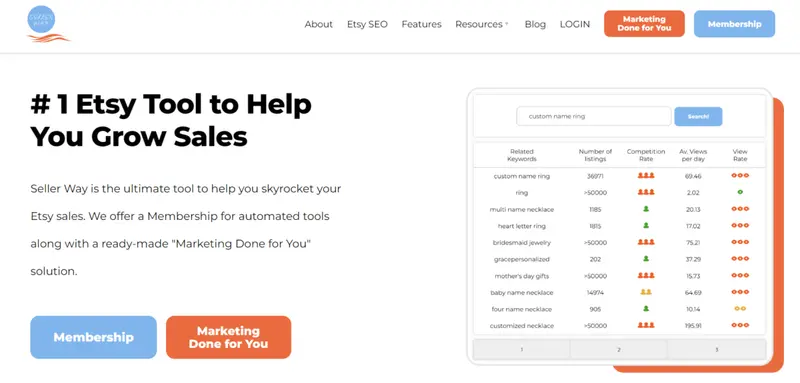Beyond choosing the right product to sell on Etsy, success on this platform results from engaging effectively with your target audience and working with the right analytics tools that can help you optimize your store. Although Etsy offers visitor, order, earnings, and conversion rate data under the Shop Manager's Search Analytics and Shop Stats, third-party apps can provide insights to help you determine aspects of your business to re-strategize, from product listings to customer engagement and ad placements.
Which one should you choose, though? To make things easier for you, we're sharing the 11 most widely used analytics platforms you can consider for boosting your sales.
Top 11 Analytics Tools for Etsy Business Growth
Product analysis and market research provide the necessary data to tailor your offers to your target buyers' needs and preferences. Here are some platforms to help you achieve both tasks:
Google Trends helps you discover trending topics and your product or store-related term’s relevance. When you go to the Explore tab to search, you can filter by country, timeframe, category, and search context. If popularity for your term is low, expect product demand related to that term to turn out low as well. Google Trends also displays an “Interest over time” graph that shows changes in a term’s search volume over your selected period. Picking a longer timeframe lets you see the months when interest for a search term rose and declined. Meanwhile, the “Related Topics” and “Related Queries” lists below the “Interest by sub-region” section show related search terms that are rising in popularity. Alura offers analytics tools encompassing the entire seller journey, from discovering consumer needs and popular keywords to use in your listing through the Keyword Finder. You can also find high-demand but low-competition products using Product Seeker, which shows you average selling prices and estimated revenues from these items. When running your store, Listing Helper audits and optimizes listings to boost your ranking. Meanwhile, examine other Etsy shops in one’s niche for competitor analysis via the Shop Analyzer. SEO is eRank’s specialization, helping you achieve this through trending ideas, keyword research, keyword ranking, competitor analysis, visibility score, listing optimization tips, and detailed shop analytics. Trend Buzz is a keyword finder that works beyond Etsy, searching popular terms in other marketplaces, such as Amazon, eBay, Google Shopping, and Pinterest Shopping. Meanwhile, eRank’s Competitor Sales and Top Sellers provide a “leaderboard” on your rivals’ performance, showing the daily orders of up to 50 Etsy shops and Etsy’s top 100 sellers, respectively. EverBee is primarily a product research platform that points you to the most in-demand items and estimates how much you can earn from selling these goods. Its keyword research metrics (search volume, score, and competition) help you understand a term’s popularity and how many listings are “competing” for or using this keyword. You can use the terms that Everbee displayed with high search volume but low competition to improve your listing’s ranking on Etsy. Meanwhile, Everbee’s Tag Analyzer, Product Analytics, and Shop Analyzer let you see how other Etsy stores’ listings appear (particularly what tags or keywords they carry) and operate (sales, conversion rate, and revenue). Putler is an eCommerce tool that allows you to measure over 200 metrics on products, customers, sales, and more. You can get real-time insights on buyer status, what they buy, your top-selling products, average order value, locations where you get sales, and more. Sales trends reports are customizable by the day, week, and month. Marmalead is another powerful brainstorming and listing optimization platform that uses machine learning to collect and analyze data. Its brainstorming features include Storm, Popular Searches, and Similar Searches, which generate trending keywords and their variations that you can save for future reference. Dive deep into a keyword’s historical (past 12 months) and predicted performance using the platform’s Long Tail, Real Search Volume (with a 30-day forecast), Seasonality (with a three-month forecast), Side-by-Side Comparison, and Real Engagement tools. The Seasonality tool has a sub-feature allowing you to view how many products (in percent) related to your search term are available with free shipping. Meanwhile, Marmalead’s Price Breakpoints feature gives a forecast of your listing’s sales value. Finally, this platform can serve as your business coach when you use Shop Grades and Listing Grades, which score your listing. Criteria include your main and long-tail keywords and tags, as well as the number of searches and engagement your keyword or phrases received. Meanwhile, Marmalead’s Quick Tips feature offers SEO and sales tips based on your “grade.” Sale Samurai is another business intelligence tool that helps you launch competitive products and retain your listing’s relevance on Etsy through its search and analytics features. Its Product Keyword Search tool displays data-rich results about the term you entered, showing its estimated monthly search and competition on Etsy and Google. You get the search term’s Etsy click-through rate (CTR), Etsy competition, and Google cost per click. The platform also generates “Keyword Suggestions,” including long-tail terms related to your seed keyword, and “Tags” used by other Etsy sellers. Meanwhile, Sale Samurai’s Analytics tool audits your shop for SEO (including missing tags and images) while offering performance data on your competitors’ titles, tags, and keywords. Its Competition Tracker lets you select the sellers to track for their sales, active listings, number of likes, pricing (over time), and shipping data. You can also enter a product’s URL on the search bar and click the “Single Listing” tab to view the number of pieces still in stock, the monthly views it receives, and when it was last sold. EtsyHunt is another online solution that can enhance your store through AI-run features such as Listing Optimizer and Photo Background Editor. These tools can further improve your listing’s visibility after using the platform’s keyword tool to discover the most searched-for terms on Etsy. Its keyword finder displays data on a product name’s number of views, favorites, competition, sales, and reviews, including its performance on Google. By clicking “Add to Tracking,” you can save keywords to monitor daily. Sales ranking, price distribution, shipping cost, and shipping time data are also available. Meanwhile, Shop Analyzer shows the number of items on sale, total items sold, and number of reviews received by each Etsy store. EtsyHunt includes product search tools, including the Etsy Products Chart, which lists top-ranking items for the past seven or 30 days, and the Etsy Product Search, which contains customizable filters, such as category, price, sales, favorites, reviews, and release time (in the past 30, 180, or 360 days). The platform also performs searches for Amazon US Handmade Products and Etsy Inactive Products. Roketfy prides itself as a “virtual listing assistant” through its discovery, optimization, and feedback insights features that use AI and machine learning. Its Listing Checker offers a smart scoring system, content analysis on wording and photos, and pricing suggestions. Roketfy’s AI Writer also supports over 25 languages, including Spanish and Chinese. The platform’s AI Reviews tool displays graphs showing the percentage of positive versus negative feedback. It generates insights on reviews based on pre-set categories (product, packaging, pricing, logistics, and returns) and the most frequently used words. Roketfy also helps you find the hottest Etsy goods per category through its Product Search feature, which includes data on pricing, daily and monthly sales achieved, and view volume. Finally, Keyword Search and Competitor Analysis list the keywords used as titles or descriptions of top Etsy products. Results include estimated daily and weekly sales information. Koalanda is another straightforward SEO solution with exhaustive details on products and shops. Results of product searches help you identify items relevant to your target market’s preferences and SEO tools. Using the words generated by the platform’s keyword tools will make your listing more findable on Etsy and beyond. Koalanda’s Competitor Analysis tool also ensures you won’t get left behind by other sellers in your niche, allowing you to save sellers to track and view their top goods and keywords. Seller Way offers analytics for your listings’ content and statistics about your shop’s traffic and reach. Its “Keywords” and “KeyCompare” tools generate trending words to improve your SEO score. The Trends feature displays the top-selling products in your niche to help you reassess your merchandise’s relevance and appeal. “Tracking Shops” and “Compare Shops” keep tabs on your competitors’ number of listings and products as well as daily and weekly sales. “Category Finder” also lets you view the categories other sellers are using to increase visitor numbers.1. Google Trends
Top features:
Pros:
Cons:
2. Alura
Top features:
Pros:
Cons:
3. eRank
Top features:
Pros:
Cons:
4. EverBee
Top features:
Pros:
Cons:
5. Putler
Top features:
Pros:
Cons:
6. Marmalead
Top features:
Pros:
Cons:
7. Sale Samurai
Top features:
Pros:
Cons:
8. EtsyHunt
Top features:
Pros:
Cons:
9. Roketfy
Top features:
Pros:
Cons:
10. Koalanda
Top features:
Pros:
Cons:
11. Seller Way
Top features:
Pros:
Cons:
Conclusion
Leveraging the right Etsy analytics tools can significantly impact your shop's visibility, sales, and overall success. By understanding your shop's performance, identifying trends, and optimizing your listings, you can make data-driven decisions that lead to higher rankings and increased revenue. Whether you're just starting out or looking to scale your Etsy business, utilizing these tools will give you a competitive edge in the marketplace.
Frequently Asked Questions
Why do I need Etsy analytics tools?
Etsy analytics tools help you track and analyze key performance metrics, allowing you to optimize your listings and marketing strategies to boost sales and rankings. By providing insights into customer behavior and market trends, these tools enable you to make data-driven decisions that can significantly enhance your shop's success.
Are Etsy analytics tools easy to use for beginners?
Yes, most Etsy analytics tools are designed with user-friendly interfaces, making them accessible even for those new to Etsy or eCommerce. These tools often come with tutorials and customer support to help beginners maximize their use and understand their shop's performance.
Can these tools help improve my Etsy search rankings?
Absolutely. These tools provide insights into keywords, customer behavior, and competitor performance, helping you optimize your listings for better search rankings.
Do I need to pay for Etsy analytics tools?
While some tools offer free versions with limited features, many advanced tools require a subscription or one-time payment to access their full capabilities. Investing in a paid tool can provide deeper insights and more comprehensive data, which can be invaluable for optimizing your Etsy shop's performance and sales.

